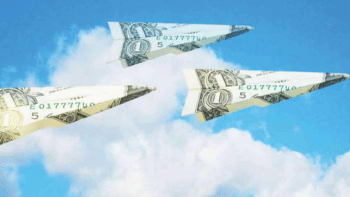Lessons in unity from Europe

As we moved upriver on a ferry along Krems, a tributary of the Danube, small villages with surrounding hillsides and cornfields fall away like picturesque view-cards. Somewhere between Germany and Austria, the landscape and vacationing crowds seem far, far from the cares of this world. It lulls me into a mental haze in between sleep and wakefulness when you can neither be in transcendental meditation nor psychedelic stupor.
As I travelled through seven countries and more than a dozen cities/towns over 11 days, I am astonished by the homogeneity of civic amenities as if I were travelling through various contiguous states of the USA. Yes, there are differences in standard of living, in infrastructure, in attitude towards life, and most certainly, a past riddled with historical baggage of wars, oppression, inequity, and hegemonistic domination and bullying of one country over another changing the political boundaries of these countries many times over the past thousand years. And yet, these countries came to realise that they had more in common than their differences, common traits of faith and culture that are more apparent to a foreigner like me travelling through these lands and finding that despite obvious differences in wealth, these countries take pride in the fact that they are Europeans with a shared common market, common visa regime and a common currency.
But Europe has always been a multiplicity of nations and cultures; no matter how obvious Europeans may appear as a broad ethnic group to an Asian or an African, European nations remained embroiled in internecine warfare and continually shifting political influence of various nations over the past millennium. But today, they are almost a single nation with fading political boundaries. As I moved through seven countries, spanning nearly two thousand miles, not once did I need to bring out my passport or provide visa information to any government authority. This seems to bring out German philosopher Immanuel Kant's idea that perpetual peace could be secured through universal democracy and international cooperation.
Under the surface of such congruous multi-national governance, the security forces remain fully alert, as can be seen from checkpoints along the highways where random checks on vehicles are made. But they remain committed to a shared prosperity and security as a region, and the sun does shine brighter and the moon dances mirthfully across the firmament because of this cohesion. Such cohesion within and amongst nations can truly bear the "world as an oyster".
But such prospects seem as remote as the daydreams of a beggar in the park when it comes to our part of the world. As we move into the country of Friedrich Nietzsche, I can't but think of his famous observation—"What can one do if power likes to walk on crooked legs?"—an aphorism that defines our fragile polity. Europeans and Middle-Easterners have travelled to South Asia in the Middle Ages in search of spices, wealth and Eastern wisdom. Now people from here travel to Europe in search of wealth, Western knowledge and better living while we keep ourselves caged in fetters of politics and petty sentiments.
When Europeans travel through the countries of South Asia, I am sure they are astonished by the novelty of our cultures and natural beauty, but at the same time, they also see the tell-tale signs that make us South Asians. Despite such common heritage and cultural roots, it's really mind-boggling that South Asian political boundaries remain as sharp as knife-points all too ready to cut anyone to pieces for traversing across them. Devise what you will: SAARC, BIMSTEC, BBIN—and still we remain afar. While regional cooperation is flourishing in Europe and even in South-East Asia, regional initiatives in our neck of the woods seem to founder time and time again even though the yoke of European colonial servitude has been removed more than 70 years ago. Now it is only us that are in the way of our working together for our greater good.
Of course, the cognoscenti will tell you, "Oh, we have religions that divide us, languages that build walls around us, and ethnicities that have vastly different DNA signatures." And despite these differences, one does not need to dig deep to find common threads in our religious customs, common roots in Aryan-Dravidian languages and common ancestors to our ethnic diversities—common South Asian traits that are as obvious to a European tourist as common European traits are obvious to a South Asian tourist in Europe.
As the poet-philosopher Lalon says, "If only I knew 'me', all riddles would be solved!" Twenty-five hundred years ago, a European philosopher, Socrates, echoed the same sentiment: "Know thyself." When we submit ourselves to such introspection, only then may we overcome our differences and rise above the artificial barriers that bind us and prevent us from taking off as a prosperous region befitting our shared history.
Habibullah N Karim is an author, policy activist, investor and serial entrepreneur. He is a founder and former president of BASIS and founder/CEO of Technohaven Company Ltd.
Email: hnkarim@gmail.com






Comments